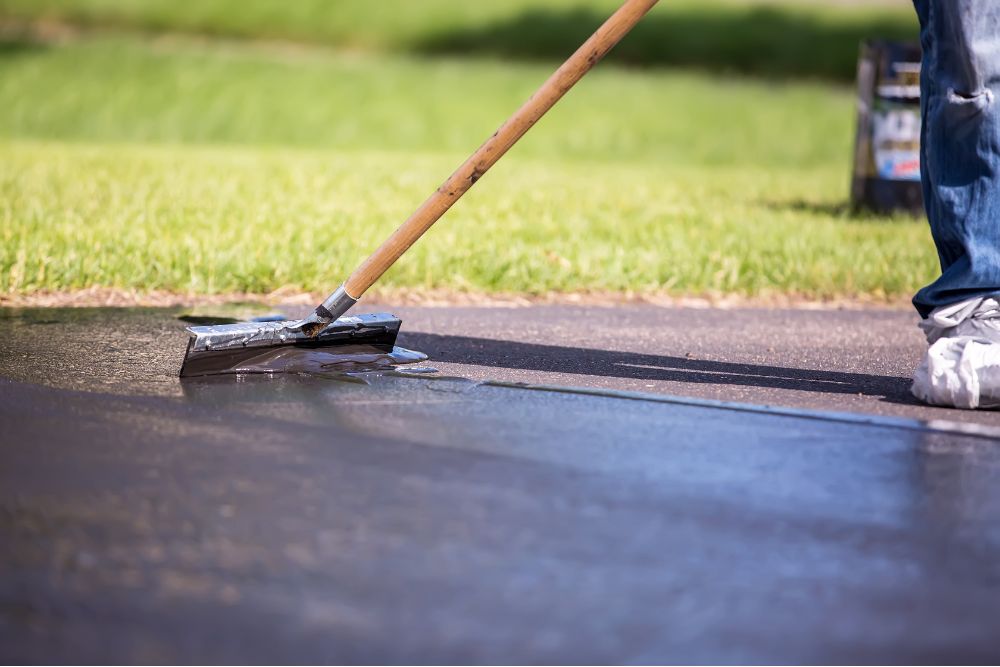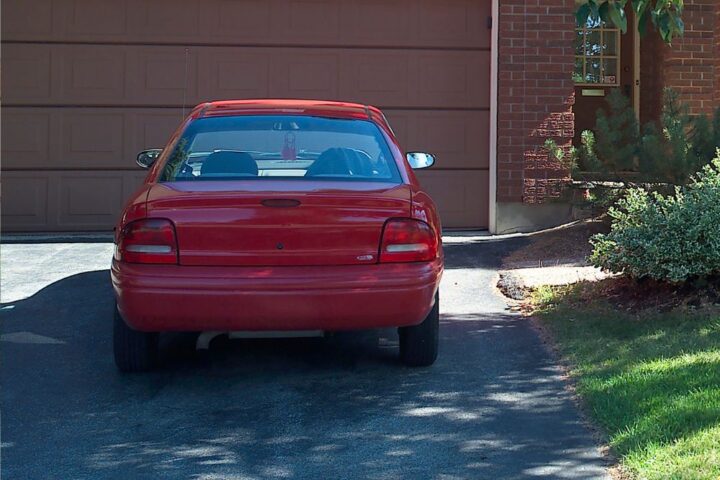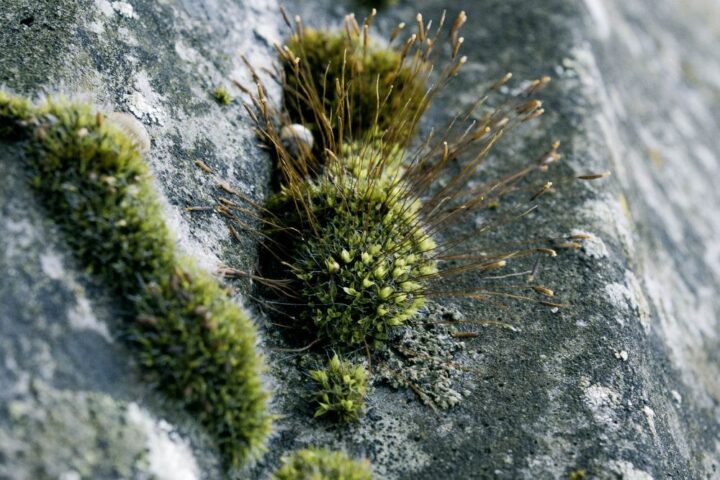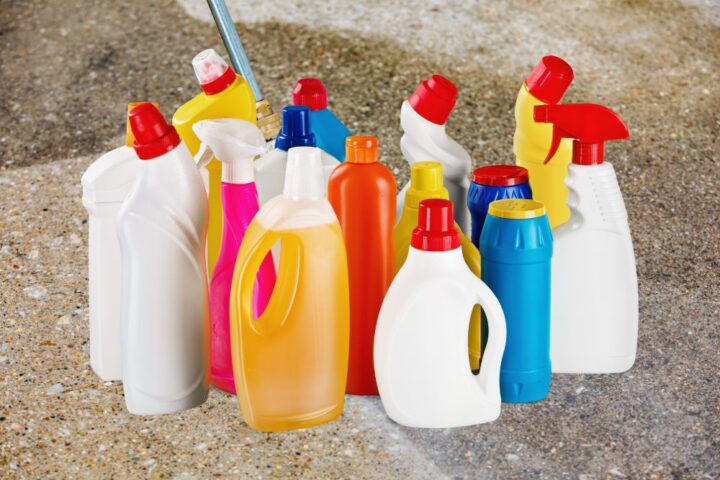While there is no law saying you have to seal your Melbourne concrete driveway, if you want it to remain in the best condition possible for as long as possible, it is definitely a good idea.
Sealing can guard against damage from moisture, resist stains, and improve the driveway’s appearance.
In this post, we will cover the details of why sealing is so important and everything else you need to know.
The Importance of Sealing Concrete Driveways
Sealing your concrete driveway not only hinders moisture intrusion that can debilitate the concrete over time, but also augments the driveway’s look and longevity. A concrete driveway without a suitable seal can soak up moisture, resulting in cracks or spalling.
Sealing your driveway isn’t solely about safeguarding, it’s also about aesthetics. A well-sealed driveway resists stains, grease, and oil, preserving its pristine, fresh appearance for years.
Furthermore, a sealed driveway endures longer, diminishing chances of expensive repairs or replacements. It’s resilient to harsh weather conditions, ensuring its performance isn’t compromised.
And here’s an extra perk: regular sealing can even amplify your property value. Potential buyers often seek homes requiring minimal maintenance, and a well-kept driveway adds to that allure.
In essence, sealing your concrete driveway is an investment in its longevity, appearance, and the value of your property. And let’s be honest, who doesn’t desire a driveway that’s robust, stunning, and raises the value of their home?
Selecting the Right Sealer
Selecting the appropriate sealer for your concrete drive depends on various crucial factors such as the type of concrete, weather conditions, the degree of traffic, and your ability to maintain it. It’s not a universal solution, and your unique needs and preferences must be considered.
Firstly, think about the material and finish of your drive. If your drive is subjected to ample sunlight, a sealer based on acrylic can provide UV protection to prevent colour fading. Conversely, if you’re contending with a lot of rain or snow, a penetrating sealer could provide superior water resistance.
The amount of traffic is another factor. If your drive is heavily used, you’ll need a resilient sealer that can resist the wear and tear. Equally important is your ability to maintain it. Some sealers need more frequent applications than others, so opt for one that suits your maintenance routine and abilities.
Common Mistakes in Sealing
Often, blunders made in the sealing process can significantly cut down the lifespan and efficiency of your concrete driveway’s protection.
A common mistake isn’t applying enough sealer. A thin layer won’t offer sufficient protection against the weather, leading to early wear and tear.
On the flip side, applying too much sealer can be equally harmful. Too much sealer can cause peeling and other surface problems, weakening your driveway’s durability. It’s crucial to find the right balance – use enough for protection, but don’t overdo it.
Picking the incorrect type of sealer can also result in poor performance. Sealers aren’t all the same, and the most suitable type for your driveway depends on various factors, including your local weather and the specific makeup of your concrete.
Hurrying the process is another usual error. If you don’t allow sufficient drying time between coats, the sealer won’t stick properly, undermining its effectiveness.
Lastly, even the best-sealed driveway won’t endure forever without routine maintenance and resealing.
Overlooking these steps can significantly reduce the lifespan of your concrete driveway. Steer clear of these blunders for a well-protected, long-lasting driveway.
Maintenance of Sealed Driveways
While steering clear of common errors in sealing can greatly boost the longevity of your concrete driveway, it’s equally vital to consistently maintain the sealed surface. You can’t merely apply the sealant and disregard it; you must put in some effort to keep it in top shape.
Start by washing your driveway every few months. Use a gentle soap and water mixture to scrub away dirt and grime. This isn’t solely about appearance; this regular cleaning aids in maintaining the sealant coating in optimal condition.
Don’t be enticed to bypass this procedure. If the sealant becomes dirty, it can deteriorate over time, leaving your driveway vulnerable to damage. After cleaning, examine the sealant. If it’s worn thin in certain areas, a light layer of sealant can greatly extend the lifespan of your driveway.
With regard to more rigorous cleaning, such as pressure washing, you must be cautious. Using the incorrect nozzle or method can harm the sealed surface. Always test a small area first. If you’re uncertain, think about hiring an expert. It might be a bit pricey, costing on average between AUD 130 and AUD 260, but it’s a minor cost for protecting your investment.
Resealing: When and How
To maintain your concrete driveway in top condition and withstand the elements, consider resealing it every 2-5 years. This timeframe isn’t fixed, as the need to reseal can greatly depend on factors such as the amount of use your driveway gets and its exposure to harmful chemicals.
You’ll realise it’s time to reseal when you observe the colour of the concrete beginning to fade, or if water no longer beads on the surface. If you’re unsure, it’s safer to err on the side of caution and have it done. Regular resealing not only maintains the appearance of your driveway but also defends the concrete surface from additional damage.
Resealing isn’t a task everyone can do themselves. It requires the correct materials, tools, and technique to guarantee a proper seal. If you’re not confident doing this yourself, think about hiring professionals who specialise in this type of work.
Benefits of Coloured Concrete Sealer
If you’re looking to boost the visual appeal of your driveway, you’ll discover that coloured concrete sealers not only offer a wide variety of colour options, but also provide substantial protection against UV rays. These sealers protect your driveway from the severe effects of the sun, preventing colour fading and discolouration. Over time, this reduces maintenance costs, measured in Australian dollars, and keeps your driveway looking vibrant and fresh.
Moreover, coloured concrete sealers are customisable. You can select a colour that ties in with your landscape or architectural features, creating a flawless integration with your property’s overall aesthetic.
Conclusion
So, is it necessary to seal your concrete driveway?
Absolutely! It’s crucial for durability and visual appeal. Choosing the correct sealer and avoiding typical errors can make a significant impact.
Regular maintenance is essential and knowing when it’s time for resealing is important. And hey, why not think about a coloured sealer for an additional touch of style?
Sealing isn’t just a recommendation, it’s a requirement for an immaculate, long-lasting driveway.




